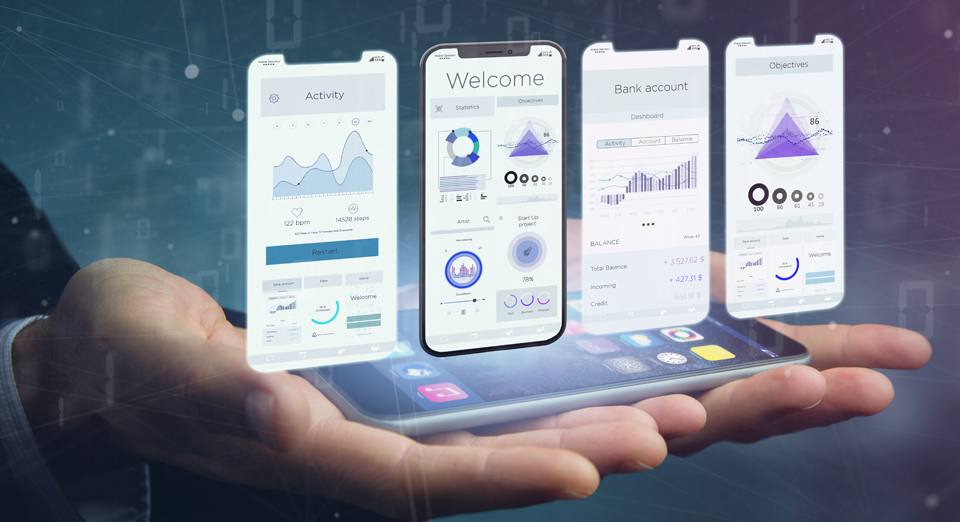- Aug 29, 2025 / Mobile App Development

Mobile apps have become an essential part of our daily lives—helping us shop, work, travel, and even manage our health. With billions of smartphone users worldwide, mobile app development continues to be one of the fastest-growing technology fields. As we step into 2025, here are the top trends, challenges, and opportunities shaping the future of mobile apps.
1. Rise of Cross-Platform Development
Traditionally, apps had to be built separately for iOS and Android. Today, frameworks like Flutter, React Native, and Kotlin Multiplatform allow developers to create cross-platform apps with a single codebase. This means faster development, reduced costs, and consistent user experience across devices.
2. AI-Powered Mobile Experiences
Artificial Intelligence (AI) is making apps smarter. From voice assistants like Siri and Alexa to personalized shopping and AI chatbots, mobile apps are integrating AI to deliver personalized and predictive user experiences. In 2025, expect even more apps with real-time AI-driven features like language translation, photo editing, and health monitoring.
3. 5G and Enhanced Connectivity
With the global rollout of 5G technology, mobile apps will become faster, smoother, and more interactive. This will open the door for real-time gaming, augmented reality (AR), and virtual reality (VR) experiences—transforming industries like entertainment, retail, and education.
4. Security and Privacy Take Center Stage
As mobile apps handle sensitive data—payments, health info, and personal details—cybersecurity is more critical than ever. In 2025, app developers will focus on end-to-end encryption, biometric authentication, and stronger data protection laws to safeguard user trust.
5. Low-Code and No-Code Development
Not every business can hire a team of developers. Thanks to low-code and no-code platforms, even small businesses can now build simple apps without heavy coding knowledge. This democratization of app development is making mobile apps more accessible to startups and entrepreneurs.
6. Mobile Apps for Everything
From fintech and healthcare to food delivery and travel, mobile apps are becoming the default way businesses connect with customers. In fact, many industries now adopt a “mobile-first” approach, ensuring their apps are just as important as their websites.

0 comment